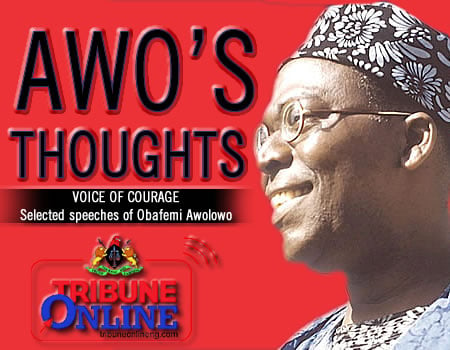CONTINUED FROM LAST WEEK
ALHAJI Aminu Kano struck the nail right on the head in his recent statement on the programme and time-table for return to civilian rule. I am in substantial agreement with him, except for one point of departure which I will mention under Section IX below.
If we are to do better than our old colonial masters, we must regard the making of a new Constitution as the exclusive and sacred preserve of a Constituent Assembly, duly and freely elected by the people of this country under a system of universal adult suffrage.
It would be a deprivation of the people’s legitimate right if the members of the Assembly were nominated by the governors or the Supreme Military Council, and the Constitution produced by such a hand-picked body will, decidedly, not be the people’s constitution.
Even under our colonial masters, the Constitutions of 1950, 1954, 1957 and 1958 were made largely by the duly elected representatives of the people of Nigeria. The same thing goes for the 1963 Republican Constitution.
The sum and substance of all this is that the Supreme Military Council will be acting wisely and in the long-term interest of our fatherland, if it entrusts the making of our new Constitution to a duly elected Constituent Assembly.
As a helpful preliminary step, the Supreme Military Council should set up a Basic Principles Committee whose duty would be to formulate basic principles for our future Constitution. The basic principles so formulated would then go to the Federal Ministry of Justice for translation into the language of a Bill. Both the Basic Principles and the Draft Bill would eventually go to the Constituent Assembly for consideration.
The Constituent Assembly should be given adequate, but limited time within which to complete its work on the new Constitution. Six months should be quite ample.
After its election, the Constituent Assembly would perform all the functions of the Federal Parliament. The leader of the majority party would form a government which would administer the affairs of the Federation. For the duration of Constitution-making, however, it would be prudent for whoever is the Prime Minister to give representation in his cabinet to all the parties who have seats in the Federal Parliament.
After the promulgation of the Constitution, the Prime Minister should be free to reconstitute his cabinet.
Within three months after the enactment of the new Constitution, elections into the Houses of Assembly in the states should be held.
In the interim before state elections, each state would be administered by a civilian governor and a cabinet of civilian Ministers who would be appointed by the Military Head of State on the advice of the Federal Council of Ministers.
The Constituent Assembly does not need to dissolve itself after concluding its work on the Constitution, but if the Constitution makes provision for an elected executive President, then his election should also take place within three months of the promulgation of the new Constitution. The Military Head of State would be functus officio on the promulgation of the new Constitution.
There are unique advantages in holding elections into the Constituent Assembly before state elections. For one thing, this arrangement would contribute towards the emergence of truly nationwide parties: every newly-formed political party would concentrate its energy on securing seats in the Federal Parliament, instead of striving to limit its sway to State Assemblies. For another, and as a result, the best men and women in the country who want to take part in politics would be obliged to vie for participation at the Federal level. It is only the dropouts among them who, unwilling to wait for the next round of bout at the Federal elections, might want to have another try at the subsequent state elections.
In other words, this arrangement would redound to the strength of the Federal Government, and enable it to hold its own as the First, or Number One government, in the land.
- ELECTIONS AND INSTALLATION OF, etc, etc.
This item in Gowon’s Nine-Point programme envisages the simultaneous holding of elections into Federal and State Parliaments, and the preparation of the new Constitution by a nominated ‘Constituent Assembly’. It will be seen from my remarks under item V, however, that Alhaji Arninu Kano’s point of view and mine do not favour these kinds of arrangement.
Under Section V above, I gave a hint of one point of departure from Alhaji Arninu’s timetable. With due deference to him, I prefer February or March 1977 to October 1976 for the transfer of power to the newly elected Constituent Assembly, for two reasons.
In the first place, registration of voters is an elaborate, difficult and time-consuming process. You begin by actual registration of voters, followed by the printing and display of preliminary voters’ list, followed again by claims and objections, followed yet again by the printing and publication of the final voters’ list. If we do not give ourselves ample time for these exercises, there are chances of regrettable failure somewhere along the line. And if such failure occurred, it is the political parties who, alone, would bear the chagrin, not the Military.
CONTINUES NEXT WEEK
WATCH TOP VIDEOS FROM NIGERIAN TRIBUNE TV
- Relationship Hangout: Public vs Private Proposals – Which Truly Wins in Love?
- “No” Is a Complete Sentence: Why You Should Stop Feeling Guilty
- Relationship Hangout: Friendship Talk 2025 – How to Be a Good Friend & Big Questions on Friendship
- Police Overpower Armed Robbers in Ibadan After Fierce Struggle






